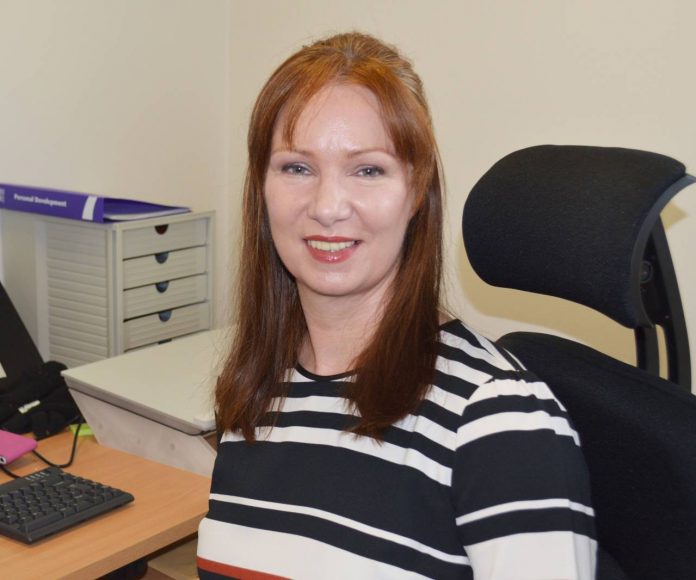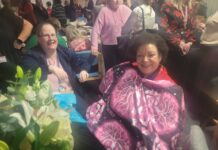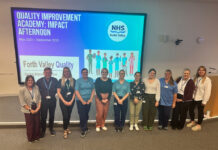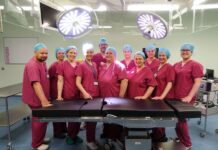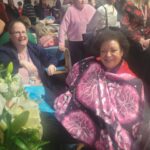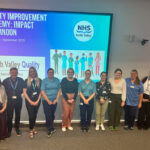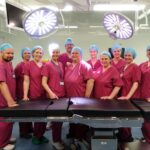New Graduate Traineeship programme for disabled people
Linda Penn, who is currently working with the Organisational Development Team at Forth Valley Royal Hospital, is one of the first trainees to participate in a new Graduate Traineeship programme which aims to give disabled people the opportunity to gain valuable work experience and training within the NHS.
For the past five years, graduate and former teacher, Linda Penn has been in agonising pain. Born and raised in Cowie she left Scotland to work in Jersey, attended university in Sheffield and then taught A-level English. In her own words she was having a pretty enjoyable life with a good career. Linda then developed what is known as complex regional pain syndrome. It started in her right hand, making marking schoolwork difficult. The pain then spread up her arm to her shoulder. With constantly interrupted sleep and fatigue, standing in front of 25 pupils became impossible. Linda moved back to Scotland and began working as a trainer in Alloa, delivering employability skills to 16-19 year olds.
Now she has had the opportunity to switch from trainer to trainee as one of 22 people with a range of disabilities on a two year national graduate scheme funded jointly by the Scottish Government and NHS Boards and supported by the Glasgow Centre for Inclusive Living. Linda was selected from a large number of applicants for the placements following a rigorous recruitment process.
She explained: “I was so excited when I saw the advertisement for the scheme which I thought would help and support me to stay in professional employment. I think it’s an amazing opportunity.
“I actually had lost hope of working at a professional level because of a condition I had developed, so I would be searching for jobs that would essentially have made me under-employed, bored and unfulfilled.”
Linda’s varied placement will be within the Human Resources Directorate, firstly working with the Organisational Development Team on projects like iMatter and Development Matters.
Under the Access to Work scheme Linda has a sit and stand electronic desk which can be raised and lowered as she cannot sit for long periods of time and needs to keep moving. She uses ergonomic furniture and equipment and has been issued with a ‘livescribe pen’ with a special paper pad for note taking at meetings. The pen plugs into a computer and converts her written words into text, taking the strain of typing off her right hand which she is sometimes unable to use.
Linda said: “Because complex regional pain syndrome is an invisible illness, people don’t think you have a disability. It’s good to raise awareness through schemes like this that there are disabilities that can’t be easily seen. I’m really, really enjoying my placement as I’m learning so much about Organisational Development and being occupied does help the pain.”
Morag McLaren, NHS Forth Valley’s Associate Director of HR, Organisational Development and Learning, added: “These placements are a wonderful opportunity for us to attract more talented graduates into different roles and careers in NHS Scotland. We are delighted to have Linda working with us in the HR Team and hope to give her as good an experience as possible to prepare her for a possible new career.”
